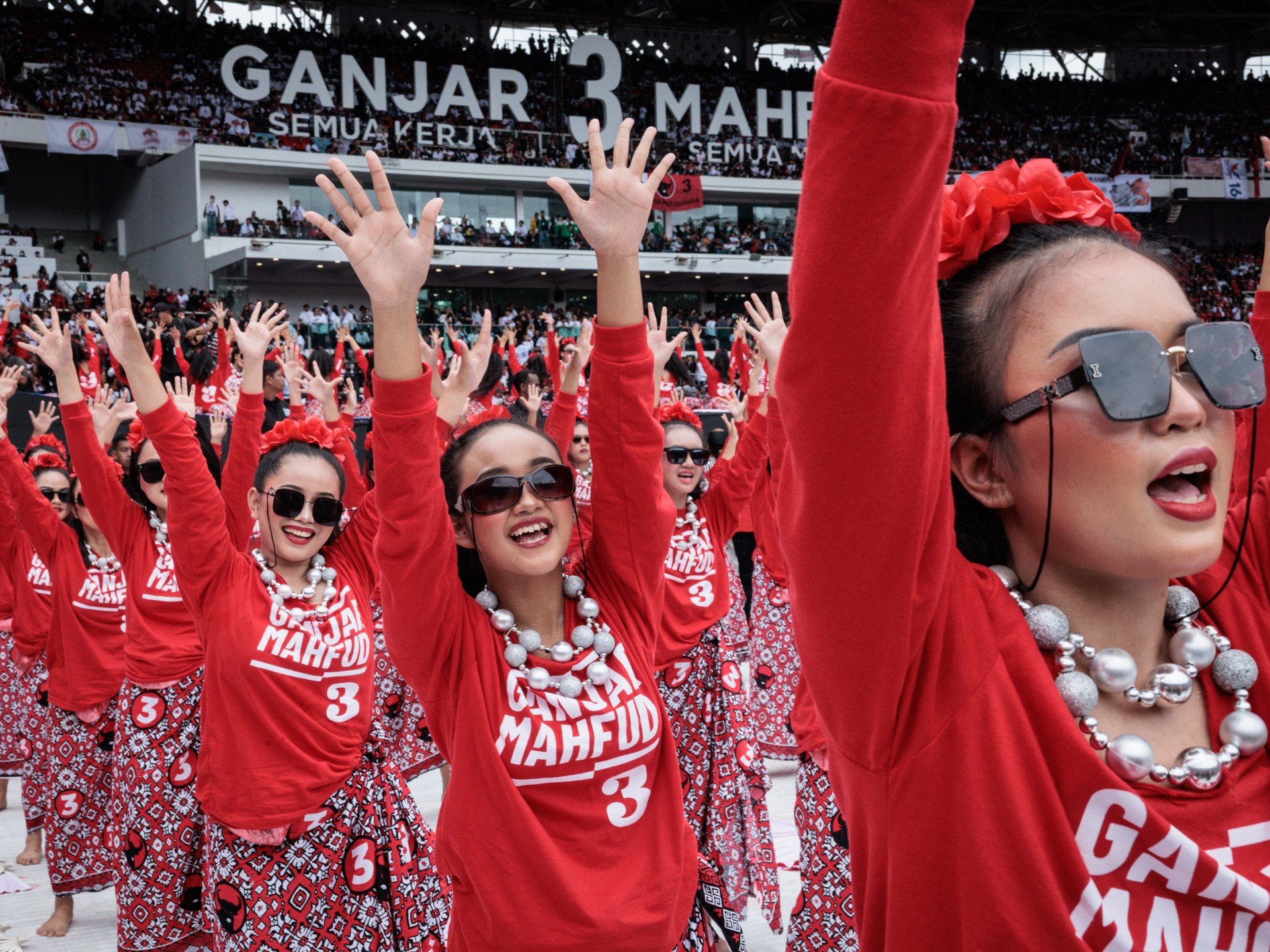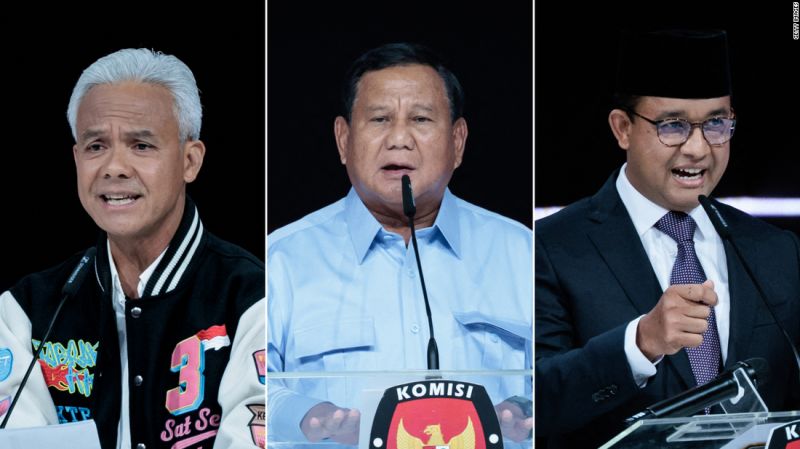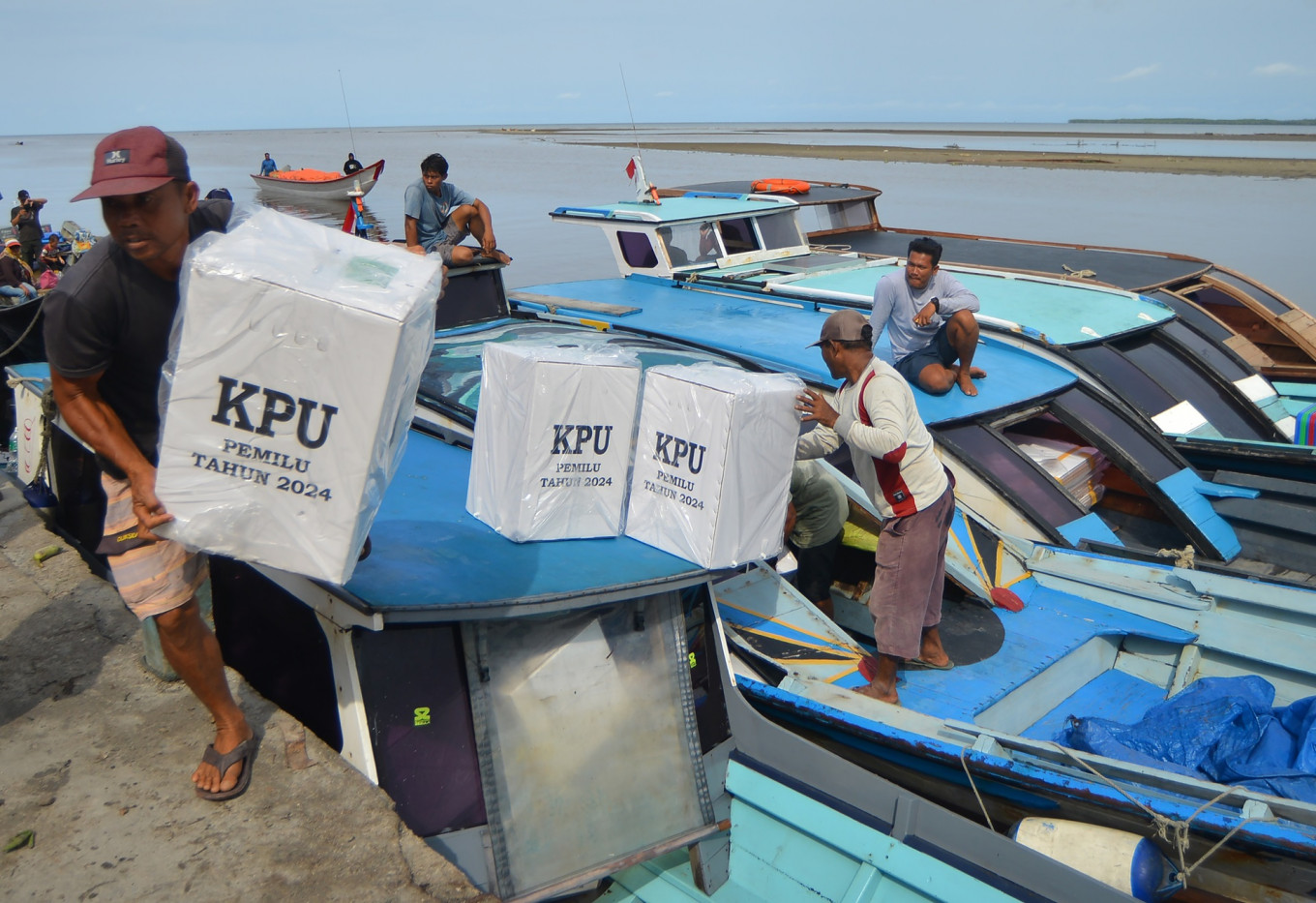In Indonesia on Wednesday, 200 million are heading to the polls for the 2024 presidential elections, in what is said to be the largest single-day election in the world. The half of registered voters who are under the age of 40 could determine the results.
Former military general and current defense minister, Prabowo Subianto, is leading in the polls. The late dictator Suharto was his father-in-law, and he is accused of having kidnapped and tortured pro-democracy activists in the 1990s (which he denies). Also running is Ganjar Pranowo, the candidate put forth by the ruling Indonesian Democratic Party of Struggle; and former Jakarta governor Anies Baswedan, who runs as an independent.
In the second presidential debate on January 7th, the three candidates had the opportunity to present their vision in the areas of foreign policy, defense policy, geopolitics and international relations. They displayed a general lack of understanding of the intricate regional dynamics and the broader geopolitical rivalry between major powers, which could potentially undermine Indonesia and the Association of Southeast Asian Nations (ASEAN) in the future. Prabowo Subianto, Ganjar Pranowo and Anies Baswedan shared their plans on where they would take Indonesia if handed the mandate. Instead of engaging in a substantive discourse on the multitude of global challenges Indonesia faces, the debate was reduced to a platform for political point-scoring and posturing.
Despite being overshadowed by personal attacks, the debate did provide a fleeting insight into the candidates' perspectives on Indonesia’s foreign policy and their respective programs. However, it could be argued that their visions and programs were conceived in a kind of ”vacuum.” What I mean is that all three candidates showcased foreign policy visions that are based on an assumption that Indonesia is the single player in the region, without taking into account the dynamics of the region itself. In other words, the three candidates, while emphasizing the need to shore up domestic aspects of foreign policy, failed to understand the context and realities of the Indo-Pacific environment in which Indonesia operates.
The Indo-Pacific is one of the most hotly contested regions in the world. Both Beijing and Washington are vying for influence in the Asia Pacific, and the majority of global trade flows through this region. The candidates ignored this context and the realities, and provided very normative answers that could prevent sound foreign policy-making should they be elected. This was very disappointing, as there is a tremendous need for Indonesia to retool and rethink the way foreign policy is exercised in this era of renewed great power competition in the Indo-Pacific.
The candidates focused primarily on their worldviews and assessments of Indonesia's domestic political landscape, along with how state institutions might shape foreign policy. They failed to offer any insights into how they would align these visions with the complex international realities of the Indo-Pacific region. A country must theoretically be able to ensure that it can fulfill both its national interest and its international obligations, while minimizing the risks that international factors might potentially impact how a state fulfills its national interests. So viewed through this lens, strengthening our nation’s domestic capabilities is not enough. What needs to be done instead is to create a platform from which foreign policy can be made and exercised not only from a position of strength, but also a platform of adaptability in a rapidly changing regional environment. The first step is in recognizing the context in which Indonesia operates.
The failure or lack of understanding of the context in which Indonesia operates was most exemplified by the answers lobbed by the candidates to a question relating to the South China Sea. Mr. Pranowo argued that Indonesia as a non-claimant has a variety of options in dealing with the South China Sea issue. But he did not elaborate this clearly, instead simply arguing to “examine what’s been done before,” and making vague answers about reaching for a “temporary agreement.”
Governor Baswedan retorted that ASEAN should have been used as a vehicle to solve the South China Sea issue, arguing the need to respond regionally to China’s claims there. Minister Subianto, on the other hand, argued that the South China Sea reiterated the need for Indonesia to strengthen its defense capabilities and infrastructure, sticking to his beliefs. Governor Pranowo responded to all three by arguing that there is a need to “revitalize” ASEAN decision-making, as a consensus-based agreement is difficult to accomplish in practice.
The problem with Indonesia’s ASEAN leadership in the Widodo administration was the inability to push ASEAN to formulate common positions on common issues.
The candidates failed to address the reality that the South China Sea issue is part of the larger geopolitical rivalry between Beijing and Washington that threatens to divide and conquer ASEAN member states. It is puzzling that the three candidates did not even consider bringing the great powers such as China and the United States in to discuss the conflict and its potential resolution, or even discuss the impact of their geopolitical rivalry that looms very large in the background. This is odd, as both China and the United States have made efforts to woo ASEAN member states into their respective orbits, both claimants and non-claimants from the wider South China Sea issue. This has already threatened ASEAN unity, most notably in the case of Myanmar.
In the Myanmar crisis, another hot-button issue in ASEAN, ASEAN is torn by internal discord and failed to maintain unity on the issue. The inability for ASEAN to present a united front against the junta resulted in what arguably is a half-baked five point peace plan that the junta did not respect.
These divisions could easily be exploited by both China and the United States and could threaten ASEAN centrality. China considers the region to be its backyard, and the United States is fighting to keep it away from the Chinese orbit. China is already the biggest trading partner of every ASEAN member state and provides the largest amount of developmental aid. The challenge for countries in the region is how to profit from China’s (and by extension the US) economic wealth without inviting any form of political interference. The divisions shown by ASEAN, however, demonstrated that this balancing act is easier said than done. The Philippines, for example, opted for closer partnership with the United States under President Ferdinand “Bongbong” Marcos.
These divisions within ASEAN, and acknowledging the elephant in the room in the US-China rivalry, should have been front and center in addressing the complex challenges that Indonesia faces in its foreign policy. The Indonesian presidency is not only a position that is vital for Indonesians, but also for the region overall. Whoever is elected must not only be able to unify Indonesians but play a role in unifying an entire region. Indonesian interests are forever tied within ASEAN, and as such ASEAN needs to be taken seriously in any foreign policy conceptions.
The candidates also failed to argue that dealing with geopolitical issues in general, not just the South China Sea issue, can be addressed better by continuing to emphasize the “free and active” doctrine, which directs Indonesia to play a significant role in regional matters, while avoiding involvement in the conflict between the U.S. and China. This did not feature in the debates as prominently as it should have. Ideally, the candidates should have presented a vision of not only what they would do in foreign policy, but a vision on how to adapt and update the free-and-active doctrine amidst a new geopolitical competition and rising tensions that further underscore Indonesia’s need to be central.
In summary, while the candidates offer promising plans to enhance Indonesia's foreign policy, they fall short in aligning those ideas with the actual international dynamics of the region. A more pragmatic and less idealistic view of foreign policy would be preferable — one that is better aligned with the intricate realities of the international arena, especially in the Indo-Pacific. The debates revealed a tendency among the candidates to favor an overly optimistic portrayal of foreign policy, overlooking the practical context and challenges Indonesia faces.
When the results of the election come in, we’ll see which candidate will be given the chance to prove his acumen in foreign policy. The nation, the region and the world will be watching.



